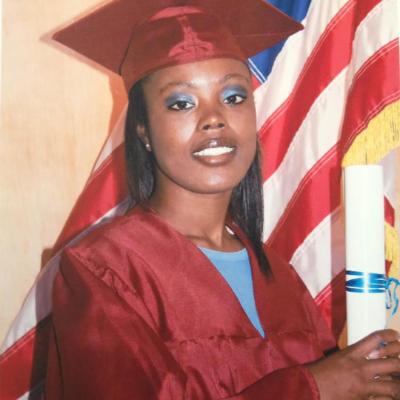Loyola's Juvenile Innocence & Fair Sentencing Clinic Secures Commutations for Clients from Gov. Brown

The Juvenile Innocence & Fair Sentencing (JIFS) Clinic at Loyola Law School, Los Angeles has secured the commutation of Kiera Newsome and three other clients in orders granted in the final days of California Gov. Jerry Brown’s term.
The grant for Newsome was the result of a 2013 clemency petition filed on her behalf by JIFS students and attorneys. Newsome was arrested for murder when she was only 16 years old and was sentenced to 60 years to life in prison. She has maintained her innocence for over 18 years -- the entire period of her incarceration. Her story was the subject of the SoCal Connected episode “People v. Kiera Newsome,” which aired on Los Angeles public broadcaster KCET-TV in November and prompted increased interest in her case by Gov. Brown’s office. JIFS attorneys and students are featured prominently in the episode.
“We have long believed in Kiera’s honest and compelling assertion of her innocence, and we are thrilled that we were able to persuade the governor’s office to feel the same way,” said Professor Christopher Hawthorne, JIFS director. “We are doing everything in our power to ensure that this innocent woman quickly returns to her family. It is heartbreaking that Kiera’s family has not seen her except behind bars for over 18 years. With her sentence now commuted to 20 years to life, she can expect to be in front of the parole board within months.”
Working alongside Hawthorne on Newsome’s case have been Loyola Public Interest Fellow Marisa Sacks ’17 and students Andrew Escano ’19, Nidya Gutierrez ’19, Gabrielle Trujillo ’18 and Stephen Riley ’18, who helped draft Newsome’s state habeas corpus petition, which supplemented her 2013 commutation petition. Together, the team pieced together the true story of the case: that Newsome was miles away at school at the time of the crime, that she was not a gang member, and that another person committed the murder – a fact that was well known by the eyewitnesses to the crime. Students also provided Newsome with much-needed support as she continued an impressive program of rehabilitation, even while serving time for a crime she did not commit.
JIFS staff and students are preparing Newsome for a summer parole hearing at which a parole board will have the final say in her fate.
JIFS has seen incredible success in its efforts to secure clemency for its clients. So far, it has secured commutations on behalf of seven of the 15 clients for which it has applied for clemency. Last year, its students conducted more than two dozen mitigation and resentencing hearings last year, achieving reversals in four of five cases appealed at the California Court of Appeal. Since it launched, JIFS has also worked to educated inmates about Juvenile Offender Parole Hearings and other initiatives that recognize the unique circumstances of those convicted as youth.
About the Center for Juvenile Law & Policy at Loyola Law School, Los Angeles
The Center for Juvenile Law & Policy (CJLP) at Loyola Law School, Los Angeles was created in 2004 to foster systemic reform of the juvenile justice system by participating in and encouraging research, discussion and advocacy in the field and developing policy initiatives for systemic change. It provides a place for stakeholders to meet and discuss issues in an atmosphere that promotes constructive cooperation. The CJLP comprises three clinics: the Juvenile Justice Clinic, which represents youth in the L.A. County juvenile justice system; the Youth Education Justice Clinic, which works to ensure that L.A. County youth receive the educational services to which they are entitled; and the Juvenile Innocence & Fair Sentencing Clinic, which works on behalf of those sentenced to life in prison as youth. Since its inception, the CJLP has trained more than 250 new attorneys and dedicated almost 80,000 pro bono hours to more than 500 children in 1,000-plus delinquency cases in L.A.’s neediest communities. Learn more at www.lls.edu/cjlp.